The votes have been cast and the boxes will be counted over the weekend. 14 MEP seats will be filled in Ireland's three European constituencies.
In the local elections, 949 councillors will be elected across 31 local authorities.
The identity of Limerick’s first directly elected mayor will also be known after the votes are counted on Monday.
What can these elections tell us about the state of Irish politics? How will they shape the result of the forthcoming general election?
Here’s 16 things to watch out for as the election results evolve over the coming days.
1. The number of TDs elected
The number of current TDs who are elected to Europe this weekend could have a significant bearing on when the next general election takes place.
It is in the gift of the Taoiseach to decide when a general election is called but results this weekend could influence that decision.
When a TD dies or resigns their seat, the Dáil must issue the writ for the resulting by-election within six months. A number of sitting TDs have contested the European elections – Fianna Fáil’s Barry Cowen and Aontú’s Peadar Toibín in Midlands-North-West; Sinn Féin’s Kathleen Funchion and Independent TD Michael McNamara in Ireland South, and in Dublin Labour’s Aodhán Ó Ríordáin and People Before Profit-Solidarity candidate Bríd Smith.
Their election to Europe would spark Dáil by-elections which must be held with six months.
Depending on how many of them are elected and what it does to the Dáil voting arithmetic, will the Government hold these by-elections within six months or just go-ahead and hold a general election?
2. The rise of the right?
It’s been one of the main talking points over the last year but will right-wing candidates really make an impact and win seats this weekend? The rise of the right has long been a feature of politics across Europe but it is a relatively recent phenomenon in Ireland.
Several candidates contesting these local and European elections could be described as hardline right-winger, and many have strong negative views on migration.
Will these candidates secure seats? And what share of the vote will they receive? These will be measures of whether we are seeing the rise of the far-right in Ireland.
3. Demise of the Greens?
In 2019, the Green Party quadrupled its number of councillors to 49. It has 129 local election candidates this time around and has had the lofty ambition to win seats in places it has never had a foothold in up to now.
Five years ago, the party also won seats in Europe with Ciarán Cuffe taking a spot in Dublin and Grace O’Sullivan securing one in Ireland South.
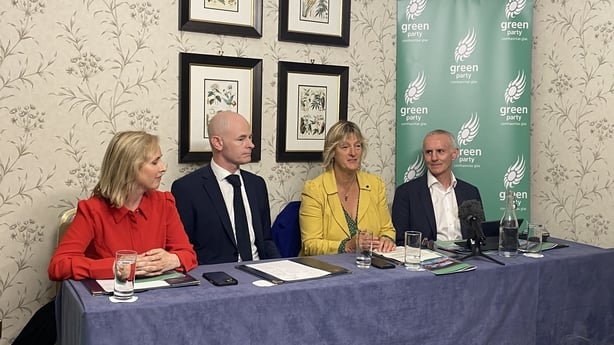
The party went on to win 12 Dáil seats in the 2020 General Election and returned to Government on the back of a 7% share of the vote.
However, trends in opinion polls for the last few years all point to a dip in Green fortunes.
When the tide goes out for a smaller party, it can have disastrous consequences. So, will this weekend mark a drop in support for the Greens? Key barometers will be the performances of the two sitting MEPs.
If Ciarán Cuffe doesn’t hold his seat in Dublin, what will that mean for the party’s fortunes in the capital in the General Election? When it comes to the local results, will the arrival of the new Rabharta party – set up by former Green councillor Lorna Bogue - damage the party and split the 'green vote’?
4. The Simon Harris effect
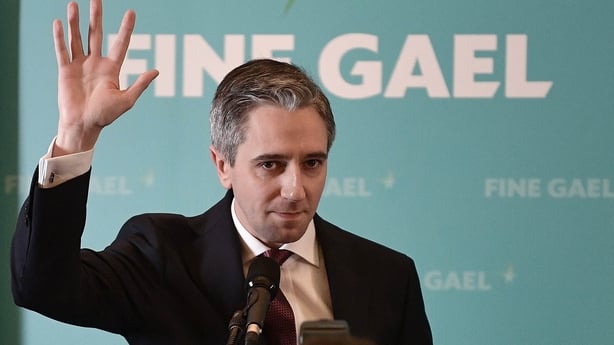
Back in 2013, then-Taoiseach Enda Kenny famously said "sometimes in politics you get a wallop in the electoral process."
He was speaking after the Government lost the referendum to abolish the Seanad.
In 2024, his successor Leo Varadkar got another referendum wallop when the government lost two further referendums on family and care.
Fine Gael changed leadership in late March after Leo Varadkar’s shock departure. The big question for the party this weekend will be has that change of leadership had any effect on Fine Gael’s fortunes?
Recent opinion polls suggest Simon Harris’ arrival as leader has revived the party in some way. But is it enough to avoid another ‘wallop’ from the electorate?
Will Fine Gael top 200 local authority seats, and can it secure a second seat in the Midlands-North-West constituency? There are key two questions.
If the unexpected were to happen, and Regina Doherty failed to get elected in Dublin, then that would surely dent the new Taoiseach’s early momentum.
5. Where exactly does Sinn Féin stand?
Sinn Féin had poor local and European election results in 2019. In the local elections, the party lost 49% of its councillors – down 78 to 81, and in Europe, out-going MEPs Lynn Boylan in Dublin, and Liadh Ní Riada in Ireland South, lost their seats.
The local and European elections are often the bellwether for the next general election. But that was not the case in 2020.
Astonishingly, some of the candidates who lost their council seats in 2019, went on to win Dáil seats the following year on the back of a Sinn Féin surge. Four years on, recent drops in opinion polls indicate a decline in support for the party over the last 18 months. This could indicate another poor day at the polls.
The counter-argument to this is that the party did so poorly in 2019 that it will likely gain council seats, and the MEP seats lost in Dublin and Ireland South could well be regained.
If that happens, talk of Sinn Féin’s decline will likely fizzle out. If the results are poor, the party will be having a major look at itself before the general election.
6. Can Aodhán Ó Riordáin save the Labour party?
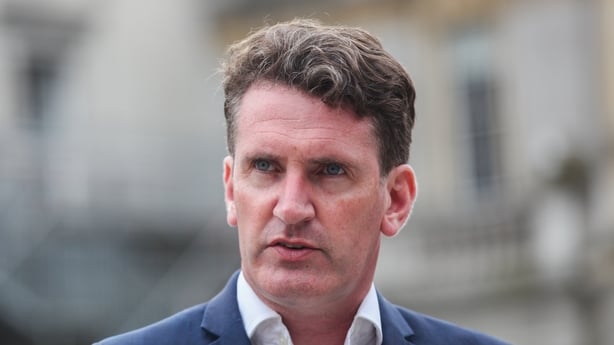
Never one to undersell his abilities, Aodhán Ó Riordáin’s pitch to voters is that such is his love for his native city that he needs to go to Brussels to help it even more. The riots in the capital city last November left him so disillusioned that only a stint in the European Parliament can truly repairs the underlying ills of his hometown. Yet it is undeniable that should the Dublin Bay North TD get elected it would serve as a boost to his party.
A win here coupled with Ivana Bacik’s by-election victory in 2021 would surely halt the work of those writing Labour’s obituary. For a while anyway.
Equally the party’s health will be measured by its performance in the local elections where it won 57 seats in 2019. This time it is running 109 candidates.
7. Independents’ Day?
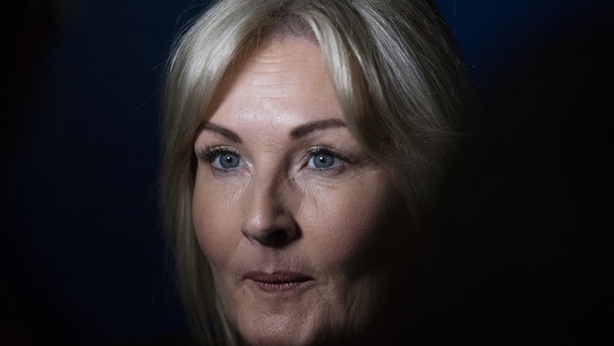
Opinion polls suggest 7 June could be remembered as Independents’ Day with a surge of support for non-party candidates. In the 2019 local elections, independents received the third-highest share of the first preference vote share (19.6%). Could they win more this time around? How will new movements such as Independent Ireland fare?
Some Independent TDs have their own stable of candidates running in the local elections. Michael Lowry has a proven track record of ‘Lowry candidates’ getting elected to Tipperary County Council. Ditto the Healy-Raes in Kerry. And 2024 marks the arrival of the new Verona Murphy-led project, the Wexford Independent Alliance. 12 independent candidates are contesting under that umbrella.
Two candidates are running for Right2Change, the party founded by Dublin South-Central Independent TD Joan Collins.
8. Broadcasters at the ballot box
30 years ago this month, journalist Orla Guerin contested for a seat in the Dublin constituency at the 1994 European elections.
The former RTÉ journalist, who would go on to become one of the BBC’s most prominent foreign correspondents, polled a 6% share of the vote, with 16,000 votes. It was not enough to secure one of the four seats in Dublin.
Five years earlier, another former broadcaster, Pat Cox, topped the poll to win a seat in Munster. He was re-elected in two subsequent European elections.
Several broadcaster and journalists have enjoyed electoral success, but will this be the case in 2024?
Former RTÉ midlands correspondent Ciarán Mullooly is contesting in Midlands-North-West, under the Independent Ireland banner.
Another former broadcaster Cynthia Ní Mhurchú, who hosted the Eurovision in 1994 (the same year Orla Guerin failed to take a seat) is standing for Fianna Fáil in Ireland South.
And in Dublin, the former Classic Hits FM radio presenter, Niall Boylan, is also running as part of Independent Ireland. Will the current wave of former broadcasters succeed in 2024?
9. Limerick’s first directly elected mayor
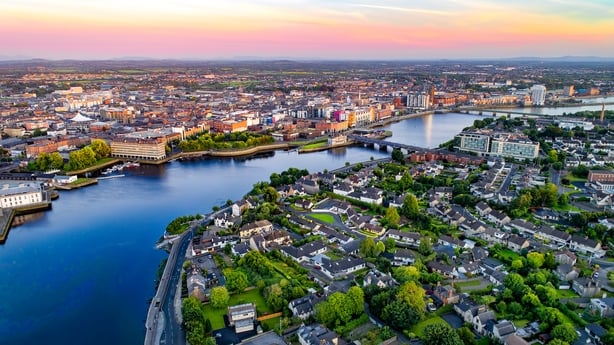
Five years ago, the people of Limerick voted in favour of having a directly elected mayor with executive functions. Waterford and Cork voted against the same proposal in May 2019.
This weekend, the people of Limerick will get their first directly elected mayor. That person will have a salary of just over €150,000 and have five administrative staff.
The mayor will have executive functions in areas such as strategic development, housing, road transport, and environmental services. There are 15 candidates in the race and we’ll know over the weekend what the tallies indicate. The count does not begin until Monday, so it will be early next week before we know who the winner is.
If either of the two TDs running in this election win, Maurice Quinlivan of Sinn Fein or the Green Party’s Brian Leddin, it would trigger a by-election within six months.
10. Will the Parnell Square hero win a seat?
Caio Benicio, the hero Deliveroo rider who intervened to stop the stabbing of children in Dublin last November, has contested these local elections. The Brazilian is contesting for Fianna Fáil in the North Inner City electoral ward for a seat on Dublin City Council.
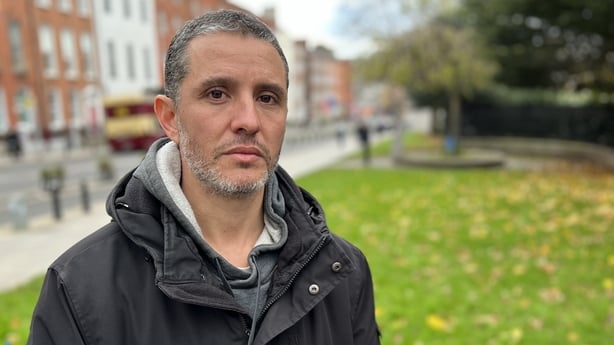
During the attack on Parnell Square last year, Mr Benicio used his helmet to hit the man who had attacked a woman and three children. He is originally from Rio de Janeiro.
Two of Fianna Fáil’s three candidates in the North Inner City are Brazilian. Anne-Marie Connolly is joined on the party ticket by Mr Benicio and fellow-Brazilian Isabel Oliveira.
11. Mica candidates in Donegal
Back in the 1997 general election, Tom Gildea was elected a TD in Donegal South West. He was a ‘single issue’ independent candidate who won support for his campaign to legalise ‘deflectors’ which re-transmitted British TV channels in rural areas.
The deflectors had been shut down across Donegal after legal action was taken by cable operators. So, there precedent for the electorate in Donegal to elect ‘single issue’ candidates at local and general elections.
In 2024, the issue of Mica redress is massive in the North West. These local elections mark a first outing for a new political party, ‘100% Redress’, which is campaigning on behalf of homeowners who have been affected by defective concrete products.
There are six 100% Redress candidates running in the seven local electoral areas in Donegal. If they win seats in the local elections, does this point to repeat of Tom Gildea’s famous win in 1997, whenever the general election comes around?
12. Former TDs for pastures old
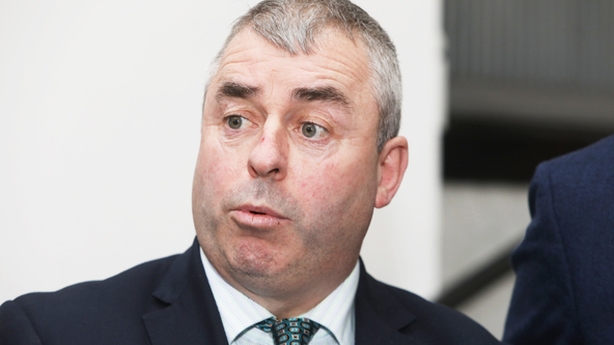
County Councils have traditionally been the stepping stone for many a political career, where a stint on the local authority was the springboard to national politics.
Some TDs go in opposite direction and return to local politics after stretches in Leinster House.
A number of former TDs are contesting the local elections. Some are sitting councillors – such as Labour’s Joanna Tuffy and former Green TD Paul Gogarty. Others to watch out for include former independent TD and junior minister Kevin ‘Boxer’ Moran who is standing in the Athlone area in the Westmeath County Council election.
Could a good local election fight be the springboard for Boxer’s return?
13. ‘Do not consider me for election’
Over 2,160 candidates are vying for votes in the 2024 local elections. But there’s one exception in Louth. Following a story published on The Ditch website last month, Fine Gael election candidate Maria Dwyer-Agrios issued a statement asking voters not to select her as a councillor in the Drogheda rural local electoral area.
She announced she will not be contesting the local election after the story alleged she received money for ending an objection to a housing development. She apologised and stated: "While my name remains on the ballot paper, I now ask voters do not consider me for election."
Local observers will have an eye on whether people pay heed to her call.
14. Seanad strife
When the dust settles this campaign there could be serious fallout in the typically harmonious Seanad chamber. That is because Senators Lisa Chambers of Fianna Fáil and the Greens’ Pauline O’Reilly have been embroiled in a bitter row during the European election campaign over how best to develop wind energy.
Should, as seems likely, neither of them get elected to Brussels this weekend, then it would surely be quite awkward when they return to the upper house as coalition colleagues on Tuesday. Ditto, Regina Doherty who now styles herself as the Greens’ watchdog, although she does look better placed to be Brussels bound in the next few days.
15. A big day for smaller parties
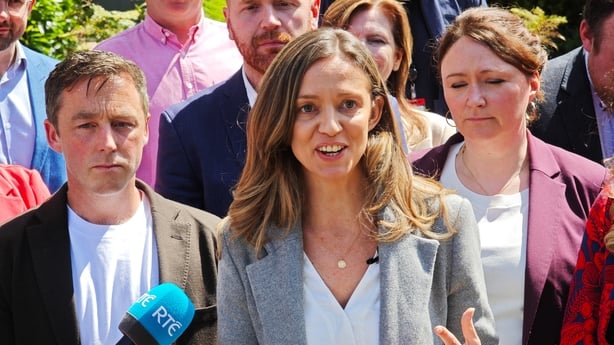
These local elections will tell a great deal about the health on the ground of the smaller parties. It is a key contest for the Social Democrats and its still relatively new leader Holly Cairns. 2019 was not a proper test for the then fledgling party when it won 19 council seats. This time it had 77 candidates in the field and focused on housing, childcare, and local services.
The timing of these elections is equally important for Aontú, the small party which most closely aligned with the Family and Care referendum results. Winning just three seats in 2019, the party had 66 candidates on the ballot papers on Friday.
Five years ago, People Before Profit-Solidarity returned 11 councillors. It entered these elections under some pressure, judging by polling data, prompting the question just how many of its 52 candidates will be successful this weekend?
16. Fianna Fáil to remain top dog in the locals?
Winning 279 council seats in 2019, Fianna Fáil increased its total council seat tally from 267 up to 279 to remain as the largest party in terms of elected councillors. Can Mícheál Martin’s party maintain this feat?
More interestingly, how will the party fare in the Midlands-North-West constituency in the European elections?
Senator Niall Blaney and Lisa Chambers are contesting along with TD Barry Cowen here. Will the party’s three candidate strategy work in this mammoth constituency?
During the campaign, the party had a very public spat where Niall Blaney accused party leader Micheál Martin of not giving the ‘same support" to his campaign as he did to the other candidates. It's not a million years since some Fianna Fáilers were privately plotting to oust their leader. Now, some party members are publicly fighting to get face time with him on the canvass trail.
This all suggests Martin will lead his party into the next general election.
Only an unexpected collapse in support this weekend will change that, and reignite speculation that he could be Ireland’s next EU Commissioner.

